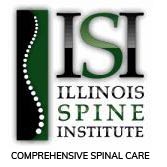Have you been recommended a spinal surgery? Get a second opinion!
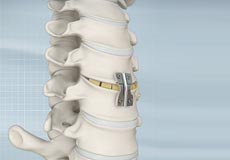
Anterior Cervical Discectomy
Anterior cervical discectomy is an operative procedure to relieve pressure or compression on the nerve roots and/or the spinal cord because of a herniated disc (damaged disc) or a bone spur.
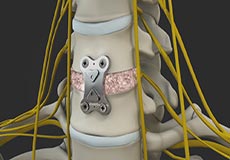
Anterior Cervical Discectomy with Fusion (ACDF)
Anterior cervical discectomy with fusion is an operative procedure to relieve compression or pressure on nerve roots and/or the spinal cord due to a herniated disc or bone spur in the neck.
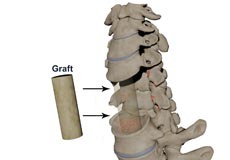
Cervical Corpectomy
An anterior cervical corpectomy and fusion is an operative procedure to relieve pressure on the spinal cord and spinal nerves by removing the damaged vertebral bone and/or intervertebral disc material (decompression) at the cervical spine, or neck.
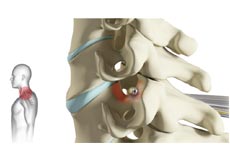
Cervical Foraminotomy
Cervical foraminotomy is an operative procedure to relieve the symptoms of pinched or compressed spinal nerve by enlarging the neural foramen, an opening for the nerve roots to exit from the spine and travel throughout the body. The neural foramen forms a protective passageway for nerves that transmit signals among the spinal cord and the rest of the body parts.
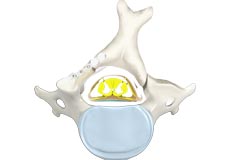
Cervical Laminoplasty
A cervical laminoplasty is an operative procedure that involves reshaping/repositioning the bone at the neck region (cervical spine) to relieve excess pressure on the spinal nerves. It can also be performed to relieve the symptoms of narrowed spinal canal known as spinal stenosis.
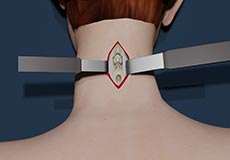
Minimally Invasive Cervical Discectomy
Cervical discectomy is a surgical procedure which relieves compression on the nerve roots and/or the spinal cord because of a herniated disc or a bone spur. This procedure involves making an incision on the front side of the neck (anterior cervical spine), followed by the removal of disc material and/or a portion of the bone around the nerve roots and/or spinal cord to relieve the compression on neural structures and provide them with an additional space.
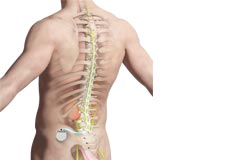
Spinal Cord Stimulator Placement
Back and leg pain often have causes which either improve on their own or which the surgeon can correct. Sometimes there is no easily correctable cause of the pain.
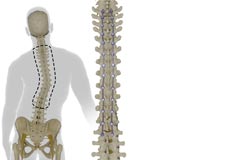
Adult Scoliosis Correction
Adult scoliosis is the abnormal curvature of the spine giving the spine an “S” or “C” shape in a skeletally mature person. Larger curves cause discomfort while smaller curves usually do not cause any problems. In most cases, the exact cause remains unknown. However adult scoliosis can develop as a result of:
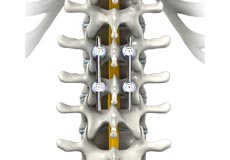
Thoracic Spinal Fusion
The human spine provides support to the body allowing you to stand upright, bend, and twist. The spine is made up of a series of 24 bones called vertebrae which are stacked on top of one another. Between two vertebrae there is a disc of cartilaginous tissue called intervertebral disc. Intervertebral discs act as shock absorbers and protect the spine from the strong forces of movement during activities such as jumping, running and lifting.
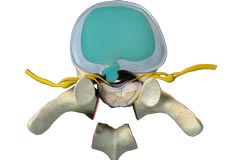
Thoracic Spine Decompression
Spinal stenosis refers to narrowing of the spinal canal caused by degeneration of the facet joints and thickening of the ligaments. These thickened ligaments narrow the spinal canal and compress the nerves causing chronic pain, numbness and tingling sensation or weakness in your arms or legs. Surgery is recommended when your pain is not relieved with conservative treatments such as physical therapy or medications.

Thoracic Vertebroplasty
Osteoporosis is a “silent” disease characterized by weakening of bones making them more susceptible to fractures, typically in the hip and spine. Elderly people and especially post-menopausal women are at greater risk of developing osteoporosis.
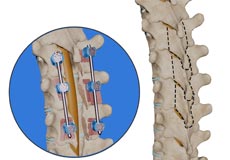
Thoracic Laminectomy
Thoracic laminectomy, also known as an open decompression is a surgical procedure in which the portion of the bone or lamina causing pressure on the nerves is removed.

Foramenoplasty
Neural foramina are small canals at every level of the spine through which nerves leave the spinal cord and go to the limbs and other parts of the body. Narrowing of this canal is called foraminal stenosis. Narrowing may be caused by bone spurs, a herniated or bulging disc, arthritis, ligament thickening or enlargement of a joint in the spinal canal.
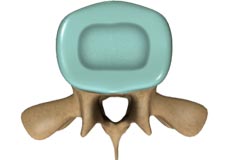
Discectomy
The human spine provides support to the body allowing you to stand upright, bend, and twist. The spine can be broadly divided into cervical, thoracic and lumbar spine. Thoracic spine lies in the mid back region between the neck and lower back and is protected by the rib cage.
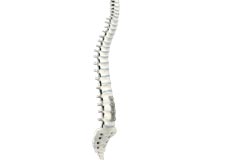
Anterior Lumbar Interbody Fusion (ALIF)
Anterior lumbar interbody fusion (ALIF) is a surgery performed to correct the spinal problems in the lower back. The surgery can be implemented either as an open surgery or minimally invasive technique.
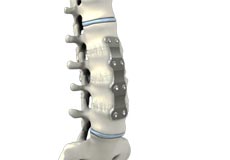
Lumbar Corpectomy and Fusion
Anterior Lumbar Corpectomy and Fusion is a surgical technique performed to remove the vertebral bone or disc material between the vertebrae to alleviate pressure on the spinal cord and spinal nerves (decompression) in the lumbar (low back) region.
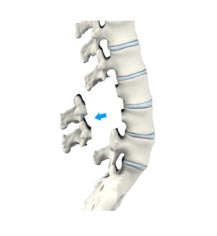
Lumbar Laminectomy
Lumbar laminectomy, also known as decompression laminectomy, is a spinal surgery done to relieve excess pressure on the spinal nerve(s) in the lumbar (low back) region.
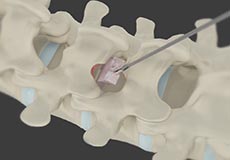
Minimally Invasive Lumbar Discectomy
Lumbar discectomy is a spinal surgery that involves removal of damaged intervertebral disc to relieve pressure on the spinal nerves (decompression) in the lumbar (lower back) region. Minimally invasive technique is implemented to perform the surgery.
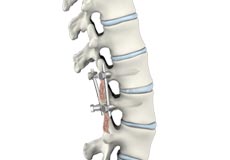
Posterior Lumbar Interbody Fusion (PLIF)
A posterior lumbar interbody fusion (PLIF) is a surgical technique that involves correction of the spinal problems at the base of the spine by placing bone graft between two vertebrae.

Posterolateral Lumbar Fusion
Posterolateral lumbar fusion is a surgical technique that involves correction of spinal problems from the back of the spine by placing bone graft between segments in the back and leaving the disc space intact.
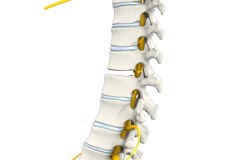
Spinal Fusion
Spinal fusion is the surgical technique of combining two or more vertebrae. Fusion of the vertebrae involves insertion of secondary bone tissue obtained either through auto graft (tissues from the same patient) or allograft (tissues from the other person) to augment the bone healing process.
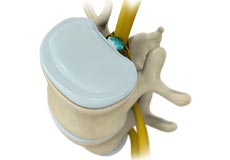
Spinal Decompression
Spinal decompression is a surgical procedure done to relieve pain and associated symptoms caused by pressure or compression on the spinal cord and/or nerves.
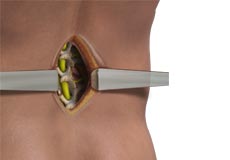
Transforaminal Lumbar Interbody Fusion (TLIF)
Transforaminal lumbar interbody fusion (TLIF) is a type of spinal fusion procedure in which bone graft is placed between the affected vertebrae in the low back (lumbar) region through an incision on the patient’s back.
Lumbar Disc Herniation - Minimally Invasive Lumbar Microdiscectomy
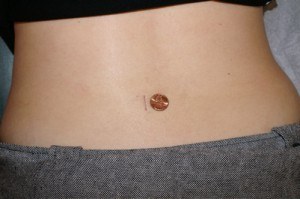
Minimally Invasive Spinal Surgery (MISS) is all about smaller incisions and less tissue disturbance, in the interests of faster post-operative recovery. Of course these aims must be balanced against the need for the surgeon to have sufficient access to achieve the aims of relieving pain and producing a durable and lasting result.
Benefits of Minimally Invasive Surgery are
- Less pain
- Faster recovery
- Shorter hospital stay
- Aesthetically better
Conditions treated with Minimally Invasive Surgery are
- Herniated Lumbar Discs
- Herniated Cervical Discs
- Neck Surgery
- Spinal Fusion
- Kyphoplasty
Please discuss your condition with your surgeon if you are a candidate for Minimally Invasive Surgery. For Appointment please call
